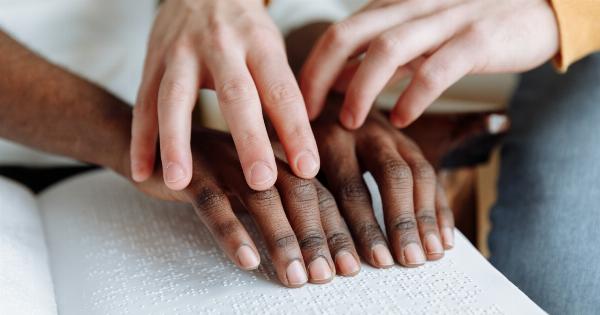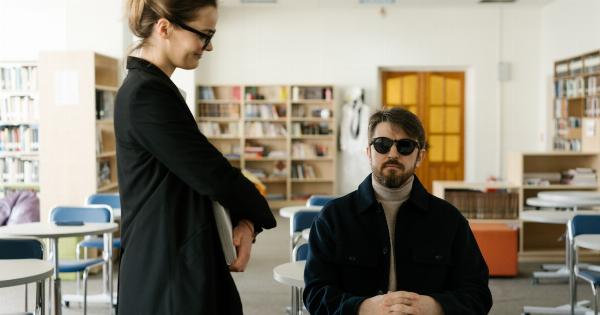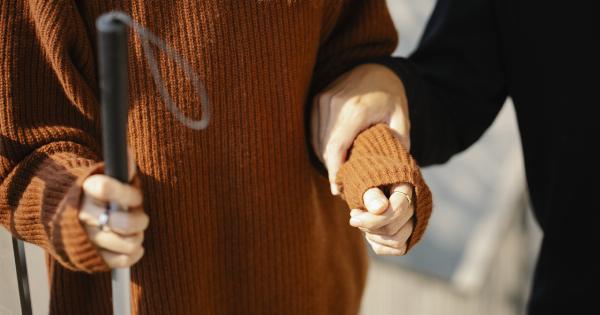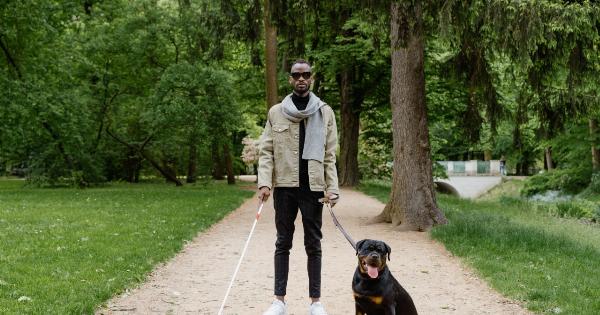Imagine waking up one morning and realizing that you can no longer see the world around you. Everything you once took for granted – the vibrant colors, the breathtaking beauty of nature, the face of your loved ones – all gone in an instant.
This is the reality that many blind individuals face every day. But amidst the darkness, they find light, strength, and a sense of belonging in a place they can call home.
The Story Begins
John Michaels, a 45-year-old blind man, had always enjoyed a fulfilling life. He had a thriving career, a loving family, and a circle of friends who cherished him. But one fateful day, a sudden illness robbed him of his sight.
Overnight, his whole world was plunged into darkness, and he was overwhelmed by feelings of fear, confusion, and despair.
Adapting to Darkness
In the initial stages of his blindness, John found it incredibly challenging to adapt. Simple tasks like navigating his home, preparing meals, and going about his daily routine suddenly became daunting obstacles.
It seemed as though his independence had been replaced with a reliance on others for every little thing.
A Beacon of Hope
One day, a close friend introduced John to the world of blind rehabilitation centers. These centers were dedicated to helping visually impaired individuals regain their independence and lead fulfilling lives.
Intrigued by the prospect of finding solace and support, John decided to enroll in a local blind rehabilitation program.
Rediscovering Independence
The blind rehabilitation program was a life-changing experience for John. It equipped him with the necessary skills to navigate the world around him without sight.
Through orientation and mobility training, he learned how to use a white cane, confidently navigate different environments, and even use public transportation. With the assistance of adaptive technology, such as screen readers and braille displays, John regained his ability to read, communicate, and engage with the world.
Finding a Sense of Belonging
Blind rehabilitation centers not only provided John with the tools to regain independence but also served as a welcoming community where he found a sense of belonging.
He connected with fellow blind individuals who understood his struggles and shared similar triumphs. Through support groups and counseling services, he learned to cope with the emotional and psychological challenges that accompany blindness.
A New Perspective on Life
As time passed, John’s perspective on life began to shift. While blindness had initially felt like an insurmountable obstacle, he now saw it as an opportunity for growth and self-discovery.
He embraced new hobbies like playing the piano and knitting, skills he never imagined pursuing before. Blindness became a part of his identity, but it no longer defined him. John’s newfound resilience and determination were a testament to the human spirit’s ability to adapt and thrive, even in the face of adversity.
An Unexpected Home
Throughout his journey, John discovered an unexpected truth – the blind rehabilitation center had become his second home.
The warmth and compassion of the staff, the camaraderie with fellow residents, and the unwavering support he received enveloped him in a sense of belonging he hadn’t experienced since losing his sight. The center had become a sanctuary, a place where he could be his authentic self without fear of judgment or discrimination.
Paying It Forward
Inspired by the transformative effect of blind rehabilitation centers, John felt compelled to give back to the community that had given him so much.
He began volunteering at the center, assisting newly blind individuals in navigating their own journeys of adaptability and acceptance. John’s empathy and personal experience made him a valuable mentor and source of hope for others.
Conclusion
John’s story is one of resilience, adaptability, and the power of finding a place to call home even in the midst of darkness.
His journey from losing his sight to finding solace and strength in a blind rehabilitation center showcases the transformative impact these institutions can have on the lives of visually impaired individuals.
Through the support, resources, and sense of community provided by blind rehabilitation centers, individuals like John can regain their independence, redefine their identity, and find a newfound appreciation for the beauty and vastness of the world around them.































